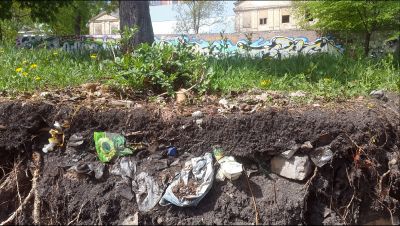| Line 30: | Line 30: | ||
*[[GMU:Humus-Micro-Habitats/Maximilian_Goetz|Maximilian Goetz]] | *[[GMU:Humus-Micro-Habitats/Maximilian_Goetz|Maximilian Goetz]] | ||
*[[GMU:Humus-Micro-Habitats/Rebecca_Hilbel|Rebecca Hilbel]] | *[[GMU:Humus-Micro-Habitats/Rebecca_Hilbel|Rebecca Hilbel]] | ||
*[[GMU:Humus-Micro-Habitats/IChen_Lai| | *[[GMU:Humus-Micro-Habitats/IChen_Lai|I Chen Lai]] | ||
*[[GMU:Humus-Micro-Habitats/Eizabeth_McTernan|Eizabeth McTernan]] | *[[GMU:Humus-Micro-Habitats/Eizabeth_McTernan|Eizabeth McTernan]] | ||
*[[GMU:Humus-Micro-Habitats/Keno_Westhoff|Keno Westhoff]] | *[[GMU:Humus-Micro-Habitats/Keno_Westhoff|Keno Westhoff]] | ||
Revision as of 19:27, 13 October 2019
Lecturer: Julian Chollet
Dates:
04.11. – 08.11.2019 (10:00 – 17:00)
Every day from 10-12 coffee discussions - OPEN for EVERYONE (Room 204)
Venue: Marienstraße 7b, DIY BioLab (Room 202)
THIS IS THE WIKI FOR THE COURSE IN WS 2019
Syllabus
Our air, soil and water as well as all plants and animals contain complex ecosystems.
This course will introduce you to various creatures colonizing the ground beneath our feet and give you the opportunity to experience methodologies and experimental strategies that are used in the natural sciences. While working in the DIY BioLab (Chair of Media Environments) you will learn how to think like a microbiologist and what it means to do scientific research. Educational objectives include literature research, experiment design, result documentation, discussion and scientific writing.
The module will be structured in a flexible way, tailored to the needs of the participants and includes lectures as well as practical work in the laboratory. Attendance during the 5 days of the course, as well as the delivery of detailed project documentation (paper, artwork, etc.) until the end of the semester is required.
The 5 day intensive course is integrated into the wider concept of the project module Soil-Humus-Earth (Prof. Ursula Damm) as well as the module Raised Beds and Pets (Mindaugas Gapsevicius).
Students
Projects
- ...
Questions
What is life? / What is humus?
Which different types of organisms live in the soil?
How is soil life interacting / what is the soil food web?
Which methods are suitable to learn more about soil microbes?
Basic concepts
Life
"There are over a 100 definitions for 'life' and all are wrong"
http://www.bbc.com/earth/story/20170101-there-are-over-100-definitions-for-life-and-all-are-wrong
https://en.wikipedia.org/wiki/Life#Definitions
Since there is no unequivocal definition of life, most current definitions in biology are descriptive. Life is considered a characteristic of something that preserves, furthers or reinforces its existence in the given environment. This characteristic exhibits all or most of the following traits:
Homeostasis Organization Metabolism Growth Adaptation Response to stimuli Reproduction
Organism
https://en.wikipedia.org/wiki/Organism
In biology, an organism (from Greek: ὀργανισμός, organismos) is any individual entity that exhibits the properties of life. It is a synonym for "life form".
Microorganism
Living beings that are too small to be seen with the (human) eye.
https://en.wikipedia.org/wiki/Microorganism
https://en.wikipedia.org/wiki/Human_interactions_with_microbes
The possible existence of unseen microbial life was suspected from ancient times, such as in Jain scriptures from 6th century BC India and the 1st century BC book On Agriculture by Marcus Terentius Varro. Microbiology, the scientific study of microorganisms, began with their observation under the microscope in the 1670s by Antonie van Leeuwenhoek.
Resources
Related Projects from the DIY Biolab @Bauhaus
- Bio.match
- PhyChip synthesiser
- GMU:Habitats_SS18
- GMU:BioArt_WS15/Physarum_polycephalum_and_unconventional_computing
please add projects!! :)
